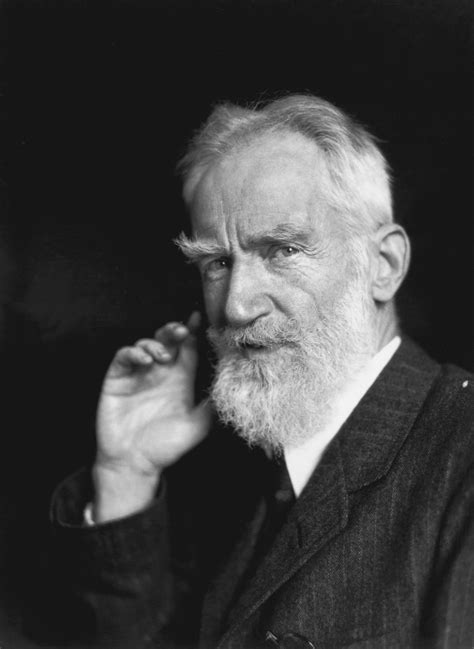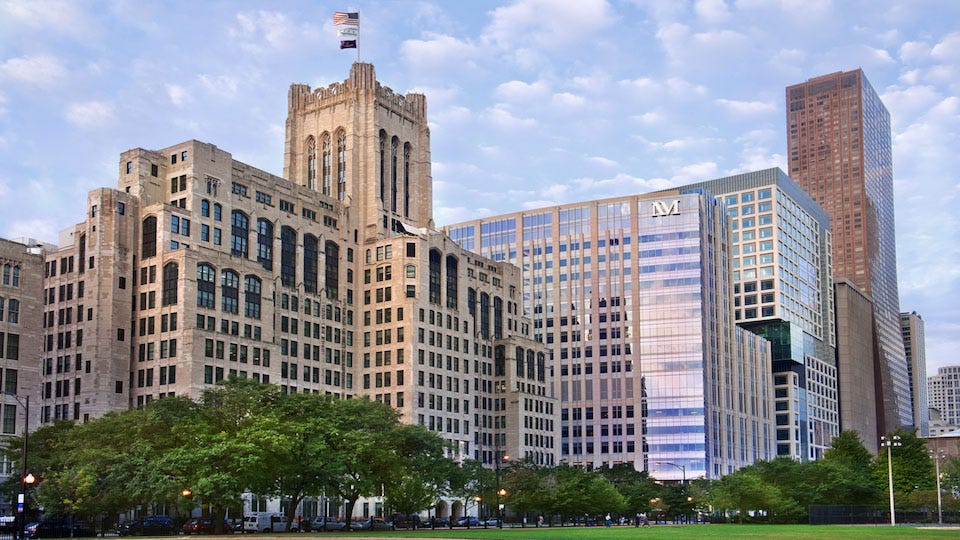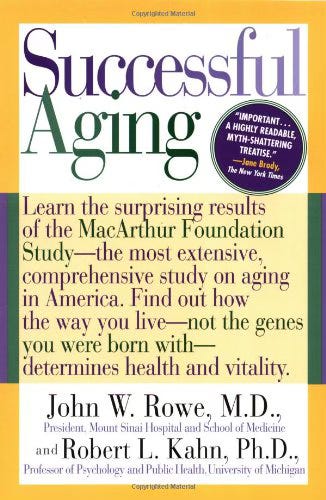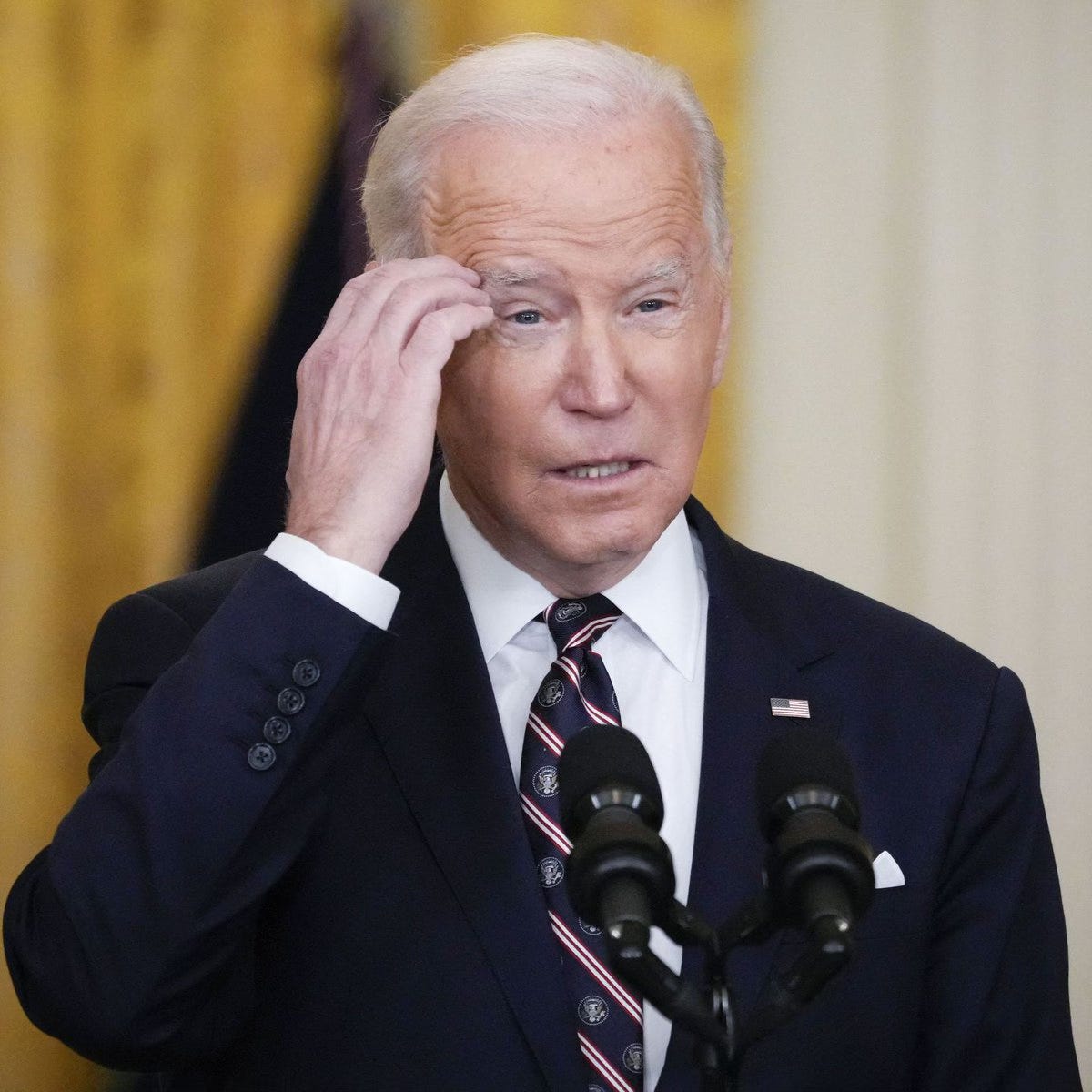So, this headline popped in my Twitter / X feed recently. So, let’s talk about “super agers.”
When I was a lowly trainee, I encountered this concept when working with some accomplished and experienced geriaticians and gerontologists.
Basically, the idea goes like this: most of us, all other things being equal - e.g., absent accidents, rare diseases, bad habits, or particularly bad genetics - will live to a respectable lifespan (around 75 for American males and 79 for American females) and then tend to wilt away from old age… or flicker out like an old lightbulb, as a former medical director I used to work with liked to say.
Prior to dying, even if dementia doesn’t occur, our cognitive faculties will tend to slow, we suffer some nagging age related cognitive decline, maybe even some bona-fide, clinically significant mild cognitive impairment (or what the big APA, the American Psychiatric Association now calls “minor neurocognitive disorder”) and then eventually, hopefully in a non-protracted way, we die.
For a small number of older people, however, something different happens. They reach their mid to late-70s, and instead of slowing down, it’s like they get a second wind. They continue to work and be productive. They’re independent.
While physically they show many of the typical signs of aging (wrinkles, aches and pains of arthritis, osteopenia, atherosclerosis, etc.), they overall don’t seem to have major health problems to get in the way of continuing to contribute to their work and to their families. Moreover, cognitively - they seem as sharp, and as productive as ever.
These are what are called “super agers” - they unusually productive, mentally vigorous, cognitively sharp, often well into old age.
Although researchers never examined their brains, here are some examples of potential super-agers that come to mind, at least for me:
George Bernard Shaw - famous American playwright, wrote his last play at 92, “Buoyant Billions”:
Brilliant, iconoclastic psychiatrist and personal hero of mine - Thomas Szasz MD worked up until his death at 92, and wrote apparently 11 books after the age of 80:
Legendary Wall Street “value investor” and Berkshire Hathaway CEO Warren Buffett, who is (as far as I’m aware) still clocking in at the the office at 92:
Tao Porchon-Lynch (died in 2020) was a world-famous Indian American yoga master who taught internationally into her 100s. She began teaching at age 87, published her autobiography at 96 and was still traveling and actively teaching yoga when she died at 101.
Brief History of the “Super Ager” Concept
The earliest evidence I could find of the term "super ager" being used in the scientific literature was indicated by a press release describing a 2008 Northwestern University study led by Changiz Geula referring to "super aged brains", indicating this is likely the first use of the term "super ager" to refer to people over 80 with remarkable memory capacity. In the release:
Scientists examined the brains of five deceased people considered super aged because of their high performance on memory tests when they were more than 80 years old and compared them to the brains of elderly, non-demented individuals. Researchers found the super aged brains had many fewer fiber-like tangles than the brains of those who had aged normally. The tangles consist of a protein called tau that accumulates inside brain cells and is thought to eventually kill the cells. Tangles are found in moderate numbers in the brains of elderly and increase substantially in the brains of Alzheimer's disease patients.
"This new finding in super aged brains is very exciting," said Changiz Geula, principal investigator of the study and a research professor of neurology at the Cognitive Neurology and Alzheimer's Disease Center at Northwestern's Feinberg School. "It was always assumed that the accumulation of these tangles is a progressive phenomenon through the aging process. But we are seeing that some individuals are immune to tangle formation and that the presence of these tangles seems to influence cognitive performance." Individuals who have few tangles perform at superior levels, while those who have more tangles appear to be normal for their age, Geula noted.
Geula will present his findings Sunday, November 16, at the Society for Neuroscience annual meeting in Washington, D.C.
Indeed, the “Super Ager” concept seems to have always been, critically, about superior brain and cognitive function - about retention of mental acuity and memory function well into old age. This seems to represent the core of the concept even today, according to colleagues Brandon S. Klinedinst and colleagues in a 2023 article in Geroscience, where researchers used a data-driven approach to identify potential super-agers among over 7000 UK “Biobank” participants aged 45-80 years old. Their research supported the notion that super-agers were:
A rare group of individuals who exhibit exceptional mental sharpness and youth-like cognitive function even at advanced ages (80+ years old), and
show a relative absence of typical brain aging and neurodegeneration, and
have remarkable qualities including higher brain volume, better cognition, and lower Alzheimer's disease biomarkers compared to normal agers.
A Super Ager - Joe Biden?
So, apparently this all started with a 2020 article, published as a “Special online feature to the Journal on Active Aging,” where the publicly available health records on both Joe Biden and Donald Trump were reviewed with the idea of determining their likely longevity.
The article was not particularly biased or outrageous - it concluded that both presidential candidates, based on their family histories, were likely to maintain good health into old age. Independent physicians noted Biden seemed to be in exceptional physical health for his age, and despite Trump having a few modifiable risk factors (obesity, for one), he was also proclaimed like to live well into eat least his late 80s.
The article then got speculative when authors opined that Biden (and Trump) may be examplars of the “super ager” concept:
Donald Trump and Joe Biden come from family histories of exceptional longevity (e.g., familial longevity). As such, there is suggestive evidence that both candidates are likely to be “super agers”—a subgroup of people that maintain their mental and physical functioning into late life and tend to live longer than the average person their age.
The media train started chugging along after this, with various outlets picking up on this idea and expanding on it.
In July of 2022, a New York Times article notes Biden is “testing the boundaries” of age and the presidency at 79 years old. It cites (again, speculatively) experts saying Biden could be a "super-ager" based on signs he is aging healthily. As Biden turned 80, WaPo & the NYT published articles focusing on Biden, his age & how it might effect his presidency and prospects for reelection (fair).
They then yet again note experts who apparently (and imho very speculatively, to say the least) invoke the concept "super-ager” to describe Joe Biden.
In April of 2023, the NYT brings out the big guns - they feature an article quoting no less than aging expert Dr. John Rowe, openly implying Biden could be a "super-ager” (although if you look carefully through the article - Dr. Rowe never directly says this).
This brings us to today - a discussion in The Hill revived discussion of Biden as a "super-ager", arguing his excellent health and - get this - lack of cognitive decline at 81 years old makes him one.
This spurred media commentary on whether Biden really qualifies…. could he be a “super-ager”?
So Now that I’ve Provided some Foundation Here… What Does GeroDoc Think?
Let’s watch a few video clips. Let’s start with Biden earlier in 2023 at a United Nations event, looking confused and wandering off:
There are multiple occasions of Joe Biden speaking essentially nonsense on camera, at public appearances. Essentially gibberish, such as at this public appearance on the White House lawn:
Another example, more recently (last week, I believe):
There are multiple clips like this of Biden speaking incoherently in public. They are generated almost as quickly as YouTube can take them down.
Is it possible these clips of Biden speaking gibberish, incoherently, can be explained because he has had lifelong problems with “stuttering,” as has often been claimed? Judge for yourself - because baseline functioning is always of critical importance when evaluating an older adult’s current functioning, here’s a video of Joe Biden from 2006, when he was 63 years old:
Here’s something I personally found most distressing (and familiar, given what I do for a living) - Joe Biden appearing severely confused and what appears to be hallucinating a dead person as alive, and calling them out in the audience.
The clip is from late 2022:
I didn’t even get into Biden’s various falls, which is a common problem in advanced age, and but potentially has both cognitive / neurological causes as well as physical ones, and is often a warning sign that an older adult is having serious, underlying issues.
Taken individually, any one of these examples above can have a non-pathognomic explanation. Biden is older. He has a stutter. He had a bad day. He was tired, etc. Sure. Absolutely a possibility.
The Concept of “Dementia Warning Signs”
The concept of dementia warning signs emerged in the late 20th century as a way to educate patients, families, and the public about the early symptoms of dementia, like Alzheimer’s disease. In 2009, the Alzheimer's Association consolidated various lists into 10 Warning Signs of Alzheimer's disease, which then formed the basis of various public health campaigns to promote early diagnosis.
The classic warning signs include things like signs of memory loss, obvious confusion with time or place, problems with words and speaking (like word-finding difficulties, etc.), poor judgment, and uncharacteristic personality and mood changes.
The idea is - if you see any of these warning signs in a loved one - that you need to do a lot more assessment (like a full dementia workup). The more warning signs you see, the more you should be worried. Read them, and decide for yourself if they apply to public appearances of Joe Biden over the last year or so.
That’s what makes all of this idea of Trump - but particularly Biden, as “super agers” patently ridiculous, speculative nonsense in my opinion.
The “super ager” concept critically hinges on retention of superior cognitive function in old age - in other words, it’s not just absence of significant physical debility or frailty that makes one a super-ager.
One needs to be demonstrably, cognitively sharp. Obviously, Biden ain’t it - despite him being what appears to be in pretty good physical shape for a man of his advanced age (he is reportedly a “gym rat,” and exercises regularly). But - absence of physical frailty or debility may not even be particularly relevant for being a super-ager - or even for whether one has dementia or not.
When I was a lowly trainee, I recall working with a very experienced geropsychiatrist who was providing some teaching around differential diagnosis of dementia. I recalled him imparting a particular nugget of clinical experience on me: one fairly reliable way to differentiate vascular dementia from Alzheimer’s dementia was by virtue of their overall aged appearance relative to their chronological age.
People with vascular dementia? They look aged beyond their years. Alzheimer’s disease? Often physically vigorous.
This, of course, makes intuitive sense and has been borne out over my last 20 years working in the field: in vascular dementia, the cause is strokes, where lifestyle factors, like smoking, drinking, bad diet, lack of exercise, etc. have a disproportionate influence on disease pathogenesis. In the case of Alzheimer’s dementia - family history (i.e., genetics) can have much more of an influence.
Conclusion
I think this recent talk of Joe Biden being a “super ager” is propaganda. It’s nonsense - particularly for a man who presents as frequently confused, incoherent, or worse in public.
Donald Trump (who is only a few years younger than Biden) - yeah, he’s no “super ager” either. They are both old - although the current president presents in some ways much more confused and often incoherent than ever - which is very, very concerning.













Great essay Doc. Unfortunately many readers of the NYT & WaPo will see the printed words that Biden is a super-ager, hence fit for office, and cast their vote accordingly. They will ignore what is in front of their eyes.
RFK, Jr., on the other hand, is looking to be a super-ager!!! In about 10 years.
Looking forward to a piece that expounds up this conjecture:
"Donald Trump (who is only a few years younger than Biden) - yeah, he’s no “super ager” either."
It's of interest to me.